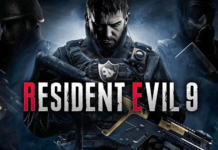Electronic sports is a growing field in North Carolina. Esports involve video game players who compete with one another often for cash prizes. WFAE’s Marshall Terry and Woody Cain looked into what’s happening with esports in Charlotte and around the state.
Marshall Terry: The group Newzoo tracks the gaming industry and predicts global revenue from esports to reach nearly $1.6 billion by the year 2024. North Carolina state lawmakers set aside $30 million in the new budget for esports.
Woody Cain: Some of that money will be used to attract esports events like the Halo Championship Series held at the Raleigh Convention Center in December. The Greater Raleigh Convention and Visitors Bureau says more than 2,600 people attended the event, resulting in $1.3 million in direct visitor spending.
Terry: Yeah, Woody, I spoke with the bureau’s executive director, Loren Gold. He anticipates esports events to only get bigger, moving from the convention center to arenas.
Loren Gold: And then you look at (8,000-15,000) attendees versus almost 2,700. The impact numbers will jump quite significantly. They could get somewhere in the $4 million to $5 million range.
Terry: The state budget also created The Esports Industry Grant Fund. It allows production companies to get up to 25% of their expenses back when they hold a major esports event in North Carolina. Gold is also thinking about the jobs epsorts can bring. And he is not the only one. So is Roger Christman, who chairs the Department of Art, Communication and Simulation and Game Design at nearby William Peace University. The school last fall became the first in North Carolina to offer a four-year degree program in esports.
Roger Christman: We saw an opportunity in the community and a need in the community, particularly right here. We’re Raleigh-based. We’re right in the center of Raleigh, and we see that very importantly, the strategic plan for Wake County, the Chamber of Commerce has identified esports as a part of their 2028 strategic vision. We see that there is a growing presence in our North Carolina community, in particular Epic Games with their Fortnite and Rocket League franchise. We also see our students are very passionate about esports, and we see a lot of opportunity for them for growth.
Terry: So what kinds of jobs does this degree program train people to do?
Christman: Esports, I really like people to think about it as a STEM. There’s a lot of science and technology, some math involved. And a lot of arts. We expand that STEM to «STEAM» by including the arts side of it. The opportunities for event managers, IT – there’s a tremendous amount of technology involved in esports and servers and security and latency. There’s marketing. We have our students taking sports psychology classes, sports science classes, simulation and game design. There is a whole interdisciplinary approach that we’re taking in this because there are so many needs in this industry as it’s growing.
Terry: So that’s the view from Raleigh, which right now is largely the center of esports in North Carolina. But some are looking to make esports bigger in Charlotte, and that’s something you looked into, Woody.
Cain: Well, Marshall, I talked with a couple of people to get a perspective about esports here. Rick Suarez is managing director of Carolina Esports Hub in south Charlotte. He’s a parent who wanted to figure out what drew his own kids to gaming and figure out how he could get involved and help. The business supports gaming leagues and has an online recruiting platform for players and coaches who want to pursue the academic route you mentioned. He says Charlotte is playing catch-up to other areas.
Rick Suarez: I think we’re a little bit behind. Georgia certainly has a commission for esports and they bring in a great amount of revenue and a great amount of people from outside the state to participate in a number of events yearly. I think the West Coast is a little more at the forefront of that, if you will. Raleigh has certainly started to bring in more and more events. I think they’ve done a fantastic job of kind of putting together a commission to look at what can and what cannot make sense for them, but I think Charlotte’s right there. I think we’re in the conversation and looking at, strategically, what can we do that’s best for the city and really start to capture more events on the esports side that really will help the growth of esports come about the right way for the city of Charlotte.”
Cain: One area where Charlotte has the lead in esports is iRacing. With local NASCAR connections here, that genre got a big boost during the pandemic. When on-track events were shut down in 2020, drivers competed virtually with Fox Sports carrying the races live and drew 900,000 viewers for the first broadcast. Charlotte native William Byron drives for Hendrick Motorsports in the real world NASCAR races. He’s also a virtual team owner in an arena where drivers compete for hundreds of thousands of dollars and even have sponsors. Byron used virtual racing as a springboard to his NASCAR job when he was a teenager.
William Byron: Yeah it’s pretty crazy. I didn’t grow up in a racing family, so it’s pretty crazy to see how much it’s grown. I think when I was on iRacing at first, it was like 2,000 members or something like that, and now I think it’s like a hundred thousand or something crazy, so it’s changed a lot, and people have grown to like it a lot, and it’s become easy to get the resources to do it, which was hard at first.
Cain: Suarez says iRacing leagues are popular at the Carolina Esports hub and hopes local leaders will try to attract more events in the same way they recruit conventions and trade shows
Suarez: I’m sure if you went around to the hotels and restaurants around Charlotte and said, «Hey, we’re playing an event that’s going to bring in thousands of people,» that’s an event they would want. It’s a no-brainer, and we’re starting to see that. We’ve been in conversations with the city on a variety of different events they’re looking strategically to bring here. So I think they definitely have their feet in the pool, if you will, and trying to make sure that it’s done in the best possible way — not just for the audience but for the city over the long term.”
Cain: Byron believes the region is uniquely positioned to take advantage of the growing industry
Bryon: I think Charlotte, just like with some of the other cities, I think with the racing connection and esports, I think they can combine those two things and have a good platform for it. So definitely with having the NASCAR Hall of Fame here and some of those things, I think it could be really good.
Cain: So that’s kind of where esports are right now in Charlotte.
Terry: I’d like to go back to Roger Christman at William Peace University in Raleigh for a moment. I asked him what he saw as the future of esports. This is what he told me.
Christman: After food and water and shelter, we all as a human species need belonging. And I really see esports helping our society in people belonging. We can all remember maybe joining the seventh-grade tennis team or volleyball team, or our kids experiencing that and that confidence, that ability, that concept of teamwork, collaboration, are all things that are needed in our society both in business and industry and in our communities.
Terry: Christman added another reason he thinks esports will continue to grow is because they’re also just fun to play. And here’s a sign that esports do continue to grow in North Carolina: UNC Greensboro has announced it, too, will begin offering a four-year esports degree this fall.










